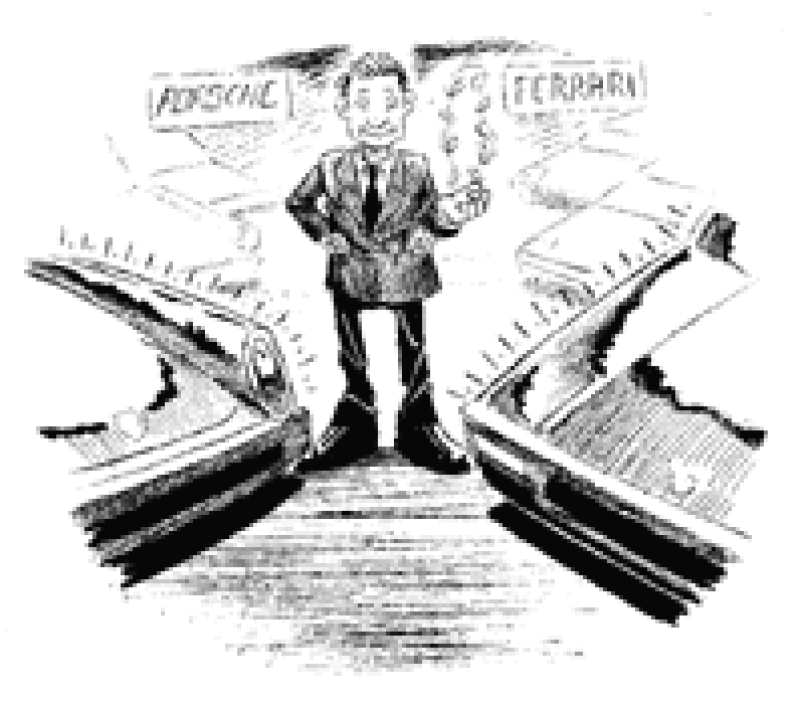In recent years, Chinese financial institutions, mainly the major banks, have been increasingly engaged in over-the-counter derivatives. The laws and regulations specifically addressing derivative transactions, however, are scarce and almost all the relevant provisions are scattered in different laws and regulations issued by several authorities, such as the People's Bank of China (PBOC), the State Administration of Foreign Exchange (SAFE), China Securities Regulatory Commission (CSRC), and the newly established China Banking Regulatory Commission (CBRC). The CBRC came into operation on April 28 to take over the regulatory functions of the central bank.
There lacks a clear set of guidelines regarding derivatives business. In fact, there is no definition of derivative. As a result, legal uncertainties and ambiguities become a major concern for foreign counterparties in conducting derivative transactions with PRC entities.
What's A Derivative?
In the PRC, derivatives transactions are generally categorized into exchange-traded transactions, such as futures, and privately negotiated transactions OTC. This is further divided into OTC commodity derivatives transactions and OTC financial derivatives transactions. Under the current regime of separation of financial businesses among banking, trust, securities and insurance and their regulation, CSRC is the authority for exchange-traded commodity futures (and equity futures, which are not permitted), CBRC--and SAFE if foreign exchange issues are involved--is the authority for OTC financial derivatives transactions. It is unclear which is the authority responsible for OTC commodity derivatives transactions, but the CSRC has the most possibility in the future, and there are no regulations relating to OTC commodity derivatives transactions. In addition, there is no clear provision on whether gold is an ordinary commodity such as silver or one of a more financial nature and regulations in this regard are unclear.
The PRC's financial market is still in an infant stage and the financial sector is overwhelmingly dominated by public ownership. A strict approving and licensing system is adopted, which is fragmented and incomplete. Only financial institutions have the capacity to enter into financial derivative transactions, all other non-financial entities (and non-competent financial institutions) may only conduct financial derivatives transactions by using competent financial institutions as intermediaries.
Lack Of Legislation
In addition, the methods and ideas in respect of financial supervision and regulation are obsolete. For instance, a hedging requirement is the core principle for all PRC entities when dealing in derivatives transactions and overseas futures. Furthermore, a lack of a sound and unified insolvency law system, security law system and netting legislation continues to be the main legal obstacle for the development of derivatives transactions in the long run. Finally, the general fragility of the PRC financial sector and insufficient reform efforts, which are interactive, will also be characteristic of the PRC derivative market.
Final Draft
The constant efforts of the authorities, initially the SAFE but then the CBRC, and the trade institutions in this region, in particular the International Swaps and Derivatives Association , the guiding regulations specific for derivative business will be finally hammered out soon. There is a final draft of the document, dubbed the Tentative Administrative measures on Financial institutions Engaging in Derivative Business (the "Measure") . This defines a derivative in a broad sense covering products in which the prices are determined by reference to one or more underlying financial assets or indices, including forwards, futures, swaps, options. Foreign exchange transactions other than spot transactions shall be treated as derivative transactions.
Financial institutions, which refer only to those under CBRC supervision other than those under the other supervisory authorities, shall apply for approval and obtain a license from the CBRC before engaging in derivatives. A financial institution engaging in derivative transactions can be categorized as either a dealer or an end-user according to the nature of its derivative business and market position. In addition to the Administration of Market Admission, the other key section of the Measures is the Risk Management inclusive of internal control, in which netting and collateral arrangements are suggested among other tools of reducing the credit risk of the counterparties. It is, however, disappointing that the hedging requirement, which was first adopted in the 1995 PBOC Notice Prohibiting Derivative Transactions Conducted by Financial Institutions Outside China at Their Own Discretion and was repealed in the previous Drafts of the Measures, is still set forth in the last Draft, though to a less extent (imposed only on financial institutions conducting derivative business as end-users). Again, as a result of financial segregation, other financial institutions such as securities companies, securities investment funds and insurance companies under the supervision of CSRC and CIRC are not mentioned in respect of conducting derivative transactions in the Measures. Nevertheless, it is widely believed that the Measures will provide a whole set of guidelines for derivative business and thus foster the development of a derivatives market in the PRC, though as stated above, derivative business would be also limited by the current condition and legal framework of the PRC financial market. And this industry has long been expecting the early promulgation of the Measures, which will come true soon.







